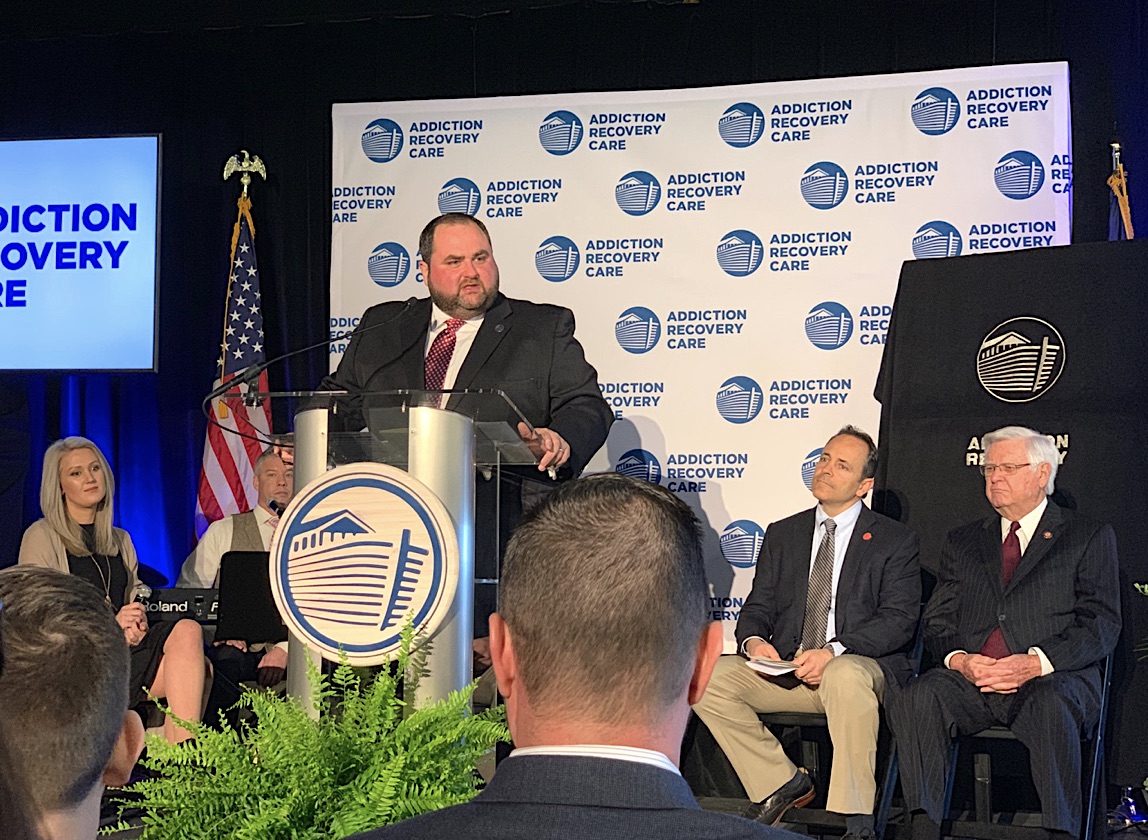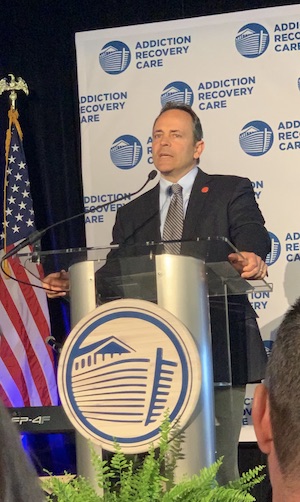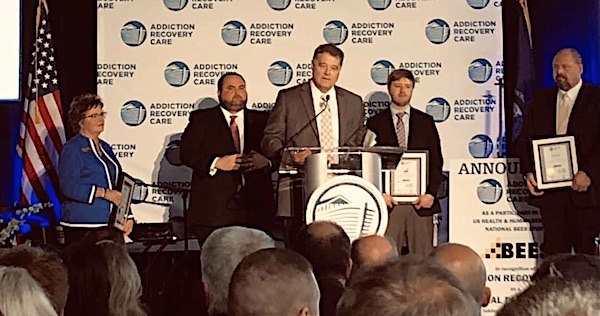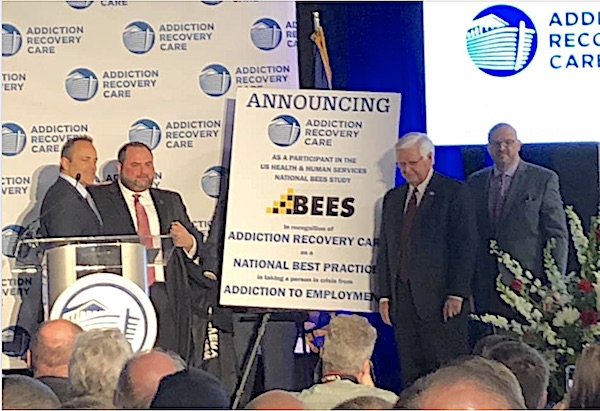Addiction Recovery Care selected for national study on employment strategies for low-income families…
Celebrates announcement alongside Governor Matt Bevin and US Congressman Hal Rogers

LOUISA, Ky. – Addiction Recovery Care (ARC) has been selected as one of the first organizations in the country to participate in the Building Evidence on Employment Strategies for Low-Income Families (BEES) project.BEES aims to evaluate the effectiveness of innovative programs designed to boost employment and earnings among low-income Americans. The U.S. Department of Health and Human Services’ Office of Planning, Research, and Evaluation within the Administration for Children and Families is funding MDRC, along with Abt Associates and MEF Associates, to conduct the evaluation.
ARC, which operates 30 treatment centers in 12 Kentucky counties, has received national attention for its crisis to career approach to treatment and recovery.
At an event held March 23 at Lake Hills Oasis, an ARC men’s residential recovery program in Somerset, KY, celebrated and formally announced the organization’s selection for the study.

Among the guest speakers at the event were Governor Matt Bevin, US Congressman Hal Rogers, Executive Director of the Office of Drug Control Policy Van Ingram, President and CEO of Operation Unite Nancy Hale, Executive Director of SOAR Jared Arnett, Executive Director of EKCEP Jeff Whitehead, and President and CEO of Sullivan University Dr. Jay Marr.
“The drug abuse crisis has invaded all of our lives in some way,” Congressman Rogers said during his address. “It is a hopeless journey not only for those in the grips of addiction, but also for the family members, friends, and community leaders, law enforcement members and all of those that are looking for a solution to what CDC says is an epidemic. But today we’re filled with some hope.”
During his address, Governor Bevin spoke of the affect that graduates of the ARC program are having across the Commonwealth.
“This dignity that comes, this part of being part of the fabric of society, from being an integral part of it, has a powerful ripple effect. It changes the trajectory forever of lives, the family trees, the branches instead of being dormant are now alive and bearing fruit. It’s amazing how powerful the ripple effect is in a community and across our state.”
“Our approach is about seeing the opportunities within our clients,” said Tim Robinson, founder and CEO of ARC. “Through a compassionate approach to recovery, delivered by highly-trained and compassionate staff, we work to heal the mind, body, soul, and spirit. We unequivocally believe that career training is a critical piece to the recovery ecosystem, and it is truly a best practice for others to follow. That the U.S. Department of Health and Human Services selected us to participate in this study is truly an honor, and it demonstrates what is possible when clinical best practices are coupled with a passion to look at the recovery model beyond just the disease of addiction.”

Being a part of the BEES project will allow ARC to participate in a comprehensive impact and implementation evaluation. As Kentucky’s leading provider of addiction treatment, Robinson said Kentucky is continuing to lead the way in access to treatment. An example of that commitment was in 2015 when the state became the first state in Appalachia and the South to allow Medicaid to cover residential treatment as part of the Affordable Care Act’s Medicaid expansion. ARC admitted the state’s first-ever Medicaid patient in 2015 and has served more than 6,000 Medicaid patients since 2015.
“We believe that access to treatment is at the core of eradicating the substance use disorder epidemic plaguing our nation,” added Robinson. “We’ve clearly defined access as an opportunity for our team of professionals to transform a life, mend a heart, restore a family, and equip clients with the tools to find meaningful employment after treatment.”

ARC’s treatment structure includes residential programs, phase 2 residential facilities, phase 3 (Transitional Learning Centers), and phase 4, which encompasses career training. ARC offers a variety of training opportunities, including general maintenance and heavy machinery. Through ARC’s education partners, clients can train in the following fields: culinary arts, intake specialists, medical receptionist, information technology, medical billing and coding, hospitality, human services, applied science, landscaping, automotive technology, and nursing. Through a partnership with the East Kentucky Concentrated Employment Program, Inc. (EKCEP) and Teleworks USA, ARC has a remote work training facility and dedicated staff to provide access to remote work opportunities for clients.
In its inaugural training program, the Peer Support Specialist Academy, participants had an 85% success rate (sober and gainfully employed two years out). This program is administered by ARC in collaboration with Shaping Our Appalachian Region, Inc. (SOAR), EKCEP, and Sullivan University. To date, ARC has trained more Peer Support Specialists than any organization in Kentucky.
Robinson practices his belief in second-chance employment. Of ARC’s 500 employees, half are in recovery. Of those 250 employees in recovery, 165 are graduates of an ARC treatment program.
“One of my biggest joys is walking into one of our facilities and seeing one of our former patients working with a current patient,” said Robinson. “It’s such an awesome experience. To see someone complete our program and be active in their recovery… to take that love and compassion they received and pay it forward, that’s what drives our work.”













![Foothills-Bundle] Foothills-Bundle](https://thelevisalazer.com/wp-content/uploads/2020/05/Foothills-Bundle-422x74.jpg)







This is so wonderful! I love hearing about this much needed program in our state. And it gives me great hope for so many people in the grips of addiction to have a positive solution!